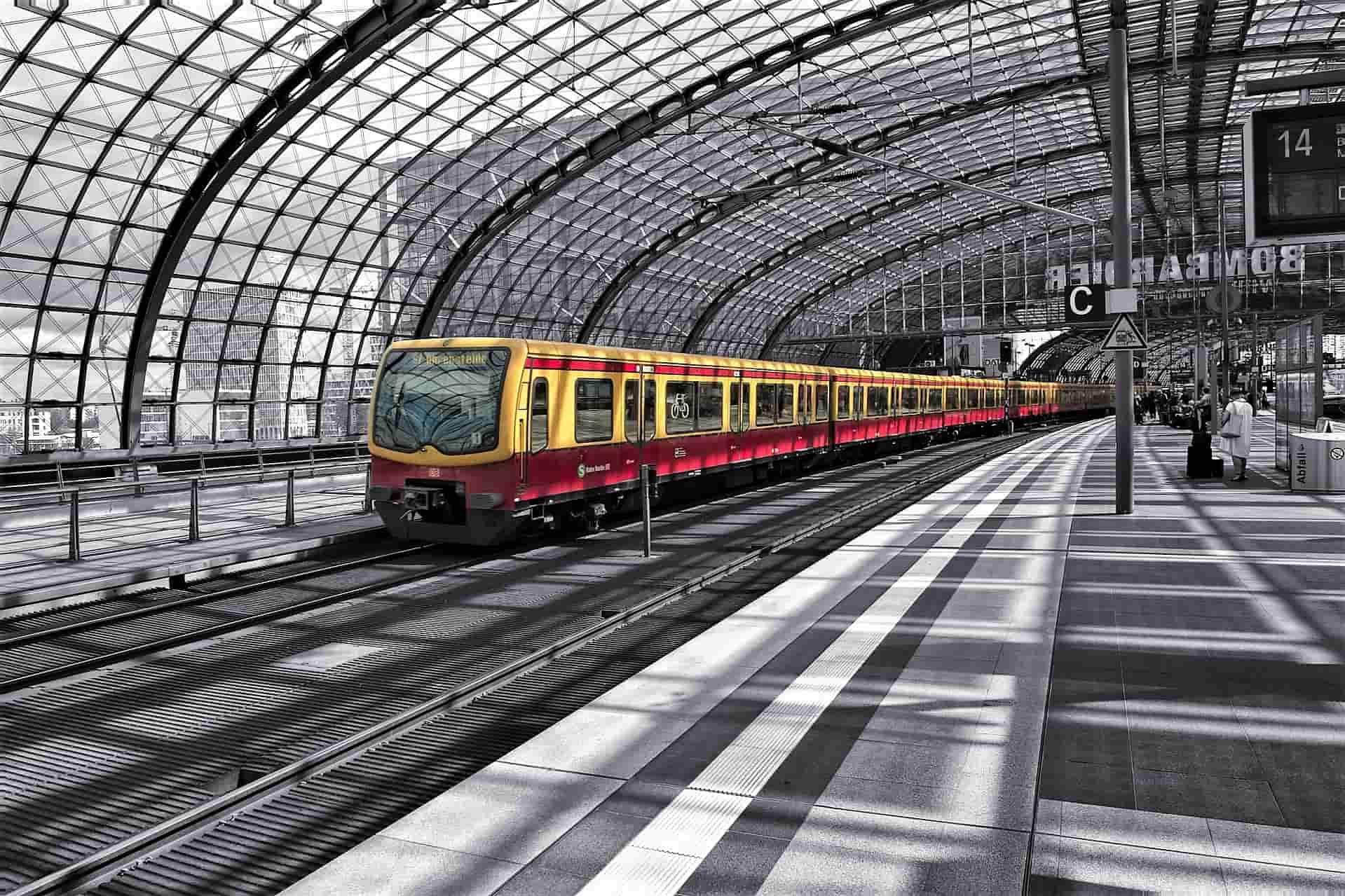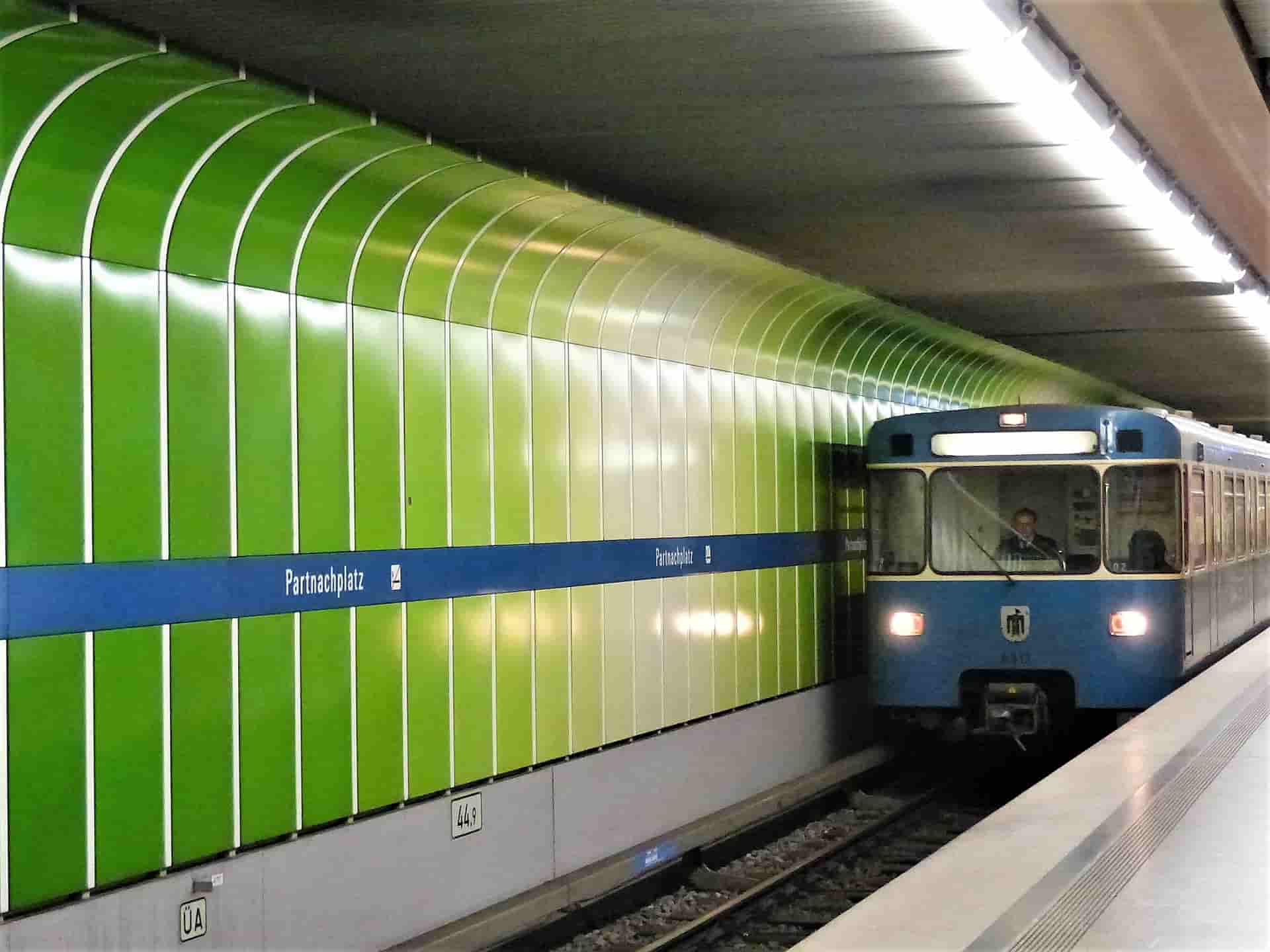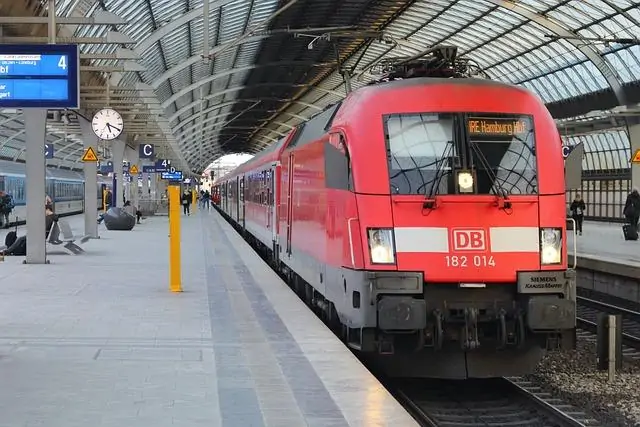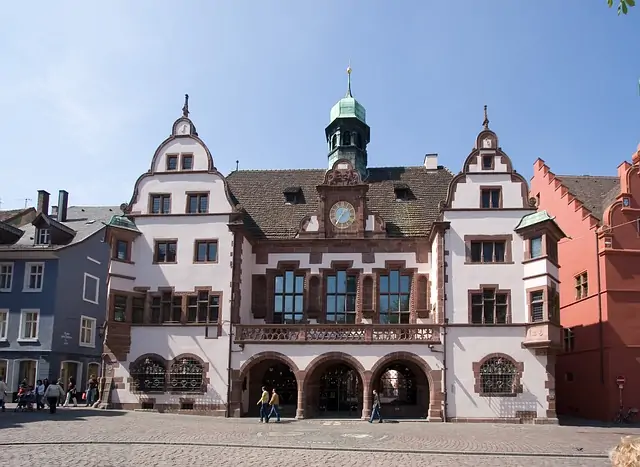This post contains affiliate links. It means that if you click on the links and make a purchase, we will receive a small commission at no additional cost to you. This allows our blog to continue providing you with free information. We only include links and products that we truly believe in. You can read the full disclosure here.
First time in Germany? You’ll want to know all about getting around in Germany. In this post, find travel tips for saving money and using public transport and cabs efficiently in the country.
Moving to Germany or new in Germany? Check out our Resources Page for all the help you need!
We still remember the day we landed at Frankfurt Airport. We hadn’t pre-booked a train to Siegburg, assuming that we could easily purchase a ticket at Frankfurt Flughafen. But there were so many options that we felt more than a little confused! Later, we realized that we could have taken a much cheaper train to Siegburg.
So yes, arriving in a new country and learning to get around in the fastest, and most cost-effective way possible is no easy task. It takes time but luckily, Germany is very well-developed and boasts of an efficient public transport system. At the same time, you also have interesting car-sharing apps and private operators to choose from.

Travelling Within Cities in Germany
Buses
Buses are widely available in Germany, and the stops are called ‘Haltestelle’ in German. They are easily recognizable, and the buses are super comfortable too. You can buy your ticket from the driver (make sure you have cash handy) and you don’t need to tender exact change. Alternatively, you can buy a ticket for your journey online from Deutsch Bahn, or other local transport provider (it depends on the city).
Post 9 PM, you can only get in from the door at the front, near the driver, and you will have to present your ticket or pass before entering. You can also buy a monthly pass online for regular bus travel (from the SWB website if you live in Bonn). Another option is to buy a four-ticket slip from the driver, and validate one every time you travel. The validation machine is usually just a little ahead of the driver’s seat.
S-Bahn
The S-Bahn, short for Stadtschnellbahn, is Germany’s rapid rail network and probably the train system that you will use most frequently. Usually, the same ticket works for S and U-Bahn trains. The stations are marked by round green and white symbols with a capital ‘S’. These trains tend to have several stops, and are slower than the DB ones. You may have to press the button at the middle of the doors to open them at your stop.

U-Bahn
The U-Bahn, short for Untergrundbahn, is Germany’s underground subway or metro, whatever you want to call it. Look out for the blue and white signs with a capital ‘U’ to identify the stations. These trains have good frequency, and are widely available in Berlin, Hamburg, Munich, Cologne, Stuttgart, Hannover, and Nuremberg.

Trams
Trams are almost identical to buses in Germany. The same rules apply, and you’ll usually have to press the big red buttons located around the seats if you want to get off at the next stop. Doors will usually open automatically.

Taxis
Taxis are certainly available in Germany, but they are rather expensive. Uber is not allowed to operate in Germany. There are other local apps such as taxi Deutschland, taxi.de, and bettertaxi that you can check. You can also call for taxis or hail them on the streets. They are always beige in colour although the model may vary.
Cycling
Germany is a very cyclist-friendly country with dedicated lanes for cyclists in most cities and towns. Cycling is very popular with Germans, and you’ll see everyone from young to old, riding for pleasure as well as work. You don’t need a license to ride your bicycle.

Ferries
Where there is a river, there you will find a ferry! Ferries are a fun way of crossing major rivers in Germany such as the Rhine. These rides are generally short and inexpensive but they still let you enjoy the riverside panorama. For longer journeys, for instance, from Bonn to Dusseldorf with Cologne in between, you can opt for leisure cruises.

Day Trips
Bla Bla Car
We haven’t personally tried Bla Bla Car but many friends swear by the car-pooling platform for cheap rides to both nearby and far-off destinations. Anyone can list themselves on the website if they’re driving to a particular location, and invite other passengers to join at a fixed price. The rates are very reasonable, and go even lower if the ride date is very close. Bla Bla Car has a good reputation for safety.
Private Bus Tours
A nice way to travel with family in the absence of a car, is to join a private bus tour to the destination of your choice. Buswelt has a variety of trips from various German cities to nearby destinations (usually not more than three to five hours away). There are both day and overnight trips available and they are always scheduled on weekends.
Car Rentals
All the major car rental companies operate in Germany, including Sixt, Herzt, and several local names. You only need an international driving license and/or one from your home country to rent a car. They usually come with manual gears but you can also request for a car with automatic controls at an extra cost. Paying for a GPS system is highly recommended. Driving in winter can be tricky in snowy areas, and you will need winter tyres if you’re determined to do it. Car rentals are allowed as long as you’re over 21 years of age.
Read also:
- How to Buy a Car in Germany and Register It – 7 Easy Steps
- Leasing a Car in Germany – How to Find the Best Deal?
Inter-City/Country Travel from Germany
DB Trains
Our personal favourite, Deutsche Bahn operates speedy regional trains in Germany that are great for inter-city travel, and sometimes inner-city trips as well. They have fewer stops, and tend to be more expensive. But if you have a job card or monthly pass covering the entire local network, that won’t matter. These trains are either RB (Regionalbahn) or RE (Regional express). For inter-country travel, you can go for the super luxurious (and expensive) ICE trains. Often, you’ll find that flights are cheaper than these trains!
Read also: Train in Germany – A Comprehensive Traveler’s Manual

Flights
Flights from Germany to many destinations in Europe are shockingly cheap. Ryanair and Easyjet are popular airlines. You can also get good holiday deals on websites like Urlaubspiraten. However, the cheap deals are not usually available for neighbouring countries. In those cases, Flixbus might be a better option. You can use Omio (earlier GoEuro) to compare transport options.

FlixBus
You might have guessed that FlixBus is our favourite mode of transport in Germany! They have an extensive network across Germany and Europe and you can travel wherever you want at the cheapest rates possible. FlixBus is ideal for towns that are a few hours away, especially if you don’t have your own car. But you can also go on long, overnight trips to other countries if you have the energy for it.

Buying Tickets in Germany
There are many ways in which you can buy journey tickets in Germany, and many kinds of tickets too. Known as ‘Fahrkarte’ in German, mobile apps allow you to purchase tickets without the hassle of shelling out change. Look for the DB app or the app of the local transport provider. You will also find ticket vending machines at train stations, bus stops, and inside trains and buses. Change the language to English if you’re not comfortable in German. If all else fails, you can get your ticket from the bus driver.
Coming to types of tickets, German cities are divided into zones, and you’ll have to select the zone based on how far you’re travelling. You can check this on a map of the area online, or at the train/bus stop. If you’re going to be sightseeing, it would be better to take a day ticket, which allows you unlimited travel until 3 AM the following day. If you’re travelling in a group, you’re in luck. There are discounted tickets available for groups of five.
Deutsch Bahn sells Bahn cards in denominations of 25, 50, and 100, which you can use to get discounts of 25%, 50%, and 100% on your ticket purchases. These cards have to be bought on a yearly basis from the DB website. DB also holds flash sales every year where you can get train tickets for half their usual prices.
Traffic Rules to Know in Germany
You may have heard that Germans are very orderly and particular about following rules. It’s true. Don’t break traffic signals – it won’t kill you to wait till the signal turns green after all! In many German cities, you have to put your palm or finger on a sensor to indicate that you’d like to cross the street.
Getting a driver’s license in Germany is not easy if you hail from a country outside the European Union. Even if you already possess a driver’s license from your home country, you will have to undergo a series of driving lessons in Germany and then clear an exhaustive written test, as well as a practical one. The whole process can be quite expensive. Anyone above the age of 18 can acquire a driver’s license.
Not all cities and towns in Germany are the same. The large cities like Berlin, Munich, and Frankfurt are easiest to navigate but many smaller townships are very walker-friendly. Do check about local rules and regulations before planning your travels.
Moving to Germany or new in Germany? Check out our Resources Page for all the help you need!
If you found this article helpful, consider supporting this website by buying me a coffee. Every small donation helps to keep this blog alive. You can also ask me any questions here. Buy me a coffee







